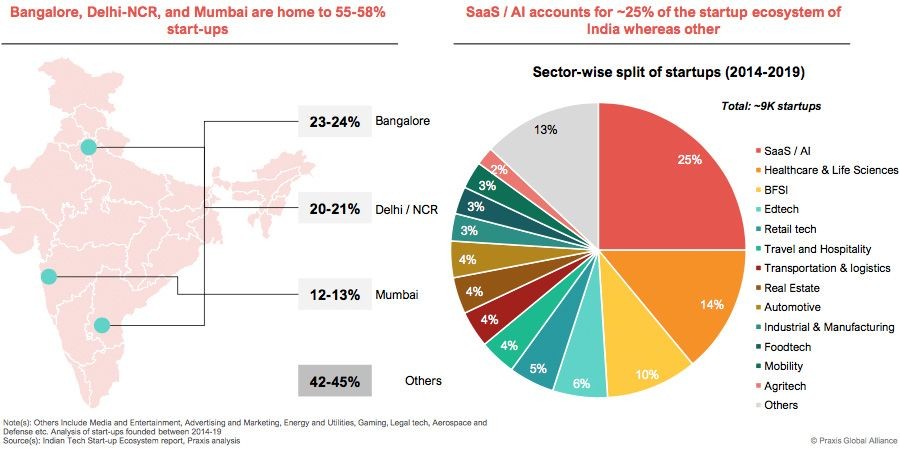The Indian start-up ecosystem is booming with innovative ideas transforming various sectors. However, the initial excitement of launching a venture can be overshadowed by the complexities of legal compliance. Understanding and tackling these legal aspects is crucial for early-stage start-ups, navigating the initial stages, and ensuring sustainable growth. This comprehensive guide with the essential legal must-haves and practical tips for Indian start-ups will help you understand the importance of legal compliance.
1. Choosing the Right Business Structur
The foremost step in starting a start-up is selecting the most suitable legal structure for it because this will impact your liability, tax implications, fundraising options, and operational flexibility. Here are some key considerations:
- Sole Proprietorship
- Limited Liability Partnership (LLP)
- Private Limited Company
- Partnership
To assure the growth of a business, consult experienced professionals regarding structure of your Start-up and most viable structure is private limited company because it allows for the fastest way to raise funds because it has the capacity to sell a share of the company in exchange for investment providing entrepreneurs with a clear incentive for investors to invest, allowing them to raise cash more easily.


2. Registration and compliance under the Companies Act, 2013.
Once you choose your structure, register your chosen entity with the Ministry of Corporate Affairs (MCA) through the online portal. For Pvt. Ltd. companies, registration with the MCA is mandatory as this will grant you legal recognition as well as access to government benefits.
For start-ups to avoid penalties and potential legal trouble, they should comply with ongoing compliance obligations such as:
- Annual KYC.
- Income Tax Returns.
- GST Fillings(if applicable)
3. Founders Agreement under the Indian Contract Act, 1872
A founders agreement is a contract among co-founders outlining ownership, roles, decision-making, and how they’ll resolve issues. When everyone’s excited about the initial idea, a founders agreement forces open communication and ensures everyone’s on the same page regarding ownership, roles, and decision-making. This clarity prevents misunderstandings and potential conflicts down the road.
Investors are more likely to back a start-up with a well-defined ownership structure and clear governance framework. A founders agreement demonstrates professionalism and reduces perceived risk for investors.
4. Intellectual Property (IP) Protection
Your start-up’s intellectual property (IP) can be its most valuable asset; it may include trademarks, copyrights, patents, or designs. Registering your IP with the Office of the Controller General of Patents, Designs, and Trademarks is important to prevent unauthorised use and establish ownership rights.
- Trademarks: Register your brand name, logos, and slogans to prevent others from using them.
- Copyrights: Automatically protect original creative works like software code, website content, or artistic designs upon creation.
- Patents: Register inventions or unique processes to prevent others from commercially exploiting them for a limited period of 20 years. Registering patents can be time-consuming and complex, so consulting a patent attorney is recommended.
- Designs: Register unique product designs for an extra layer of protection against unauthorised copying
By taking these steps to protect your IP, you safeguard your competitive advantage and ensure the long-term success of your innovative ideas.
5. Non-Disclosure Agreement (NDA)
When you collaborate with potential investors, partners, or employees, you often share confidential business information like trade secrets, product ideas, or customer lists; therefore, it’s crucial to protect them through a binding contract called Non-Disclosure Agreements (NDAs) to keep this information confidential. A well-drafted NDA outlines the confidential information, the duration of confidentiality obligations, and potential legal consequences for breaches.
By following the above legal must-haves, you’ll be equipped to launch your Indian start-up with confidence and a clear path to success. At IAIPF, we understand the importance of navigating legal complexities while fostering innovation. We encourage you to focus on what you do best, i.e., building your game-changing idea, while we provide the legal foundation for your journey. If you have any questions, feel free to connect with us to learn more.
Author: Shubhi Gupta – 5th-year law student of ICFAI Law School, IFHE University (Hyderabad).


0 thoughts on “Legal Checklist for Indian Start-ups: Balancing Innovation With Compliance”
pIvUqoOlyzje
Your comment is awaiting moderation.